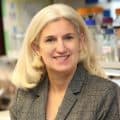
The HESI Protein Allergens, Toxins, and Bioinformatics (PATB) Committee is co-hosting a virtual workshop in collaboration with the Society of Toxicology (SOT) Food Safety Specialty Section titled “From Protein Toxins to Applied Toxicological Testing” in the context of safety assessment of novel foods and feeds. The virtual workshop will take place on 21–22 October 2020 from 9:00 AM to 1:00 PM EST each day and is open to all interested participants. It will cover the state of the science in protein toxins biology (structure, activity, MOA, etc.), current bioinformatics approaches used to identify and characterize protein toxins, with the ultimate goal to leverage computational biology and in silico approaches for determining the potential of a protein to present toxic properties.
The Protein Toxins Workshop will serve the dual purpose of learning about the advances in protein toxin research presented by recognized international academic experts in the field and assessing the translation of knowledge to practical applications (e.g., into weight-of-evidence approaches for the safety assessment of biotechnology products; relevance, applicability, and limitations of existing protein toxin databases and tools for risk assessment). The desired outcome of this event is to help inform the development of contemporary and scientifically robust approaches for the identification and classification of potential toxicity risk in novel proteins.
Details
- Date: Wednesday, 21 October 2020 – Thursday, 22 October 2020
- Time: 9:00 AM – 1:00 PM EST
Workshop Publication
“From Protein Toxins to Applied Toxicological Testing” virtual workshop identifies the need for a bioinformatic framework to assess novel food protein safety. Bauman PA, Doxey AC, Eberini I, Islamovic E, Jungo F, Kessenich C, Kough J, Krishanh M, Palazzolo L, Privalle L, Rodriguezi CE, Satchell KJF, Silvanovich A, Mouriès LP. Regulatory Toxicology and Pharmacology. June 2022.
Protein Toxins Workshop Speakers
-
 Read Bio
Read BioAndrew Doxey, PhD
University of Waterloo
Dr. Andrew C. Doxey is a bioinformatician and Associate Professor in the Department of Biology at the University of Waterloo, where he holds a University Research Chair. He is cross-appointed to the School of Computer Science, and is also an adjunct Professor in the Department of Medicine at McMaster University. The Doxey lab focuses on bioinformatics, microbial genomics, and molecular evolution, and applies computational methods to discover new protein families and functions. Recent work includes the development of the AnnoTree phylogenomics database, and the discovery of botulinum-like toxins, diphtheria-like toxins, and enzymatic flagella. Dr. Doxey is supported by grants from NSERC and MITACS, and is the recipient of the 2018 Thermo Fisher Award for contributions to microbiology.
-
 Read Bio
Read BioFlorence Jungo, MS
Swiss Institute of Bioinformatics / SwissProt
Florence Jungo is the program leader of the animal toxin annotation project of the UniProtKB/Swiss-Prot database, a project she started in 2004. Since 2000, she has been working as a biocurator at the SIB Swiss Institute of Bioinformatics for the UniProt knowledgebase, the reference resource of protein sequences and functional annotation. Since 2013 she has been in charge of the development of the scientific part of the VenomZone portal, which was first made public in 2015 (https://venomzone.expasy.org/). Since 2020, she has been a member of the Management Committee of the COST EUVEN – European Venom Network Action, which aims to promote animal venom research in Europe.
-
 Read Bio
Read BioAnna Lanzoni, PhD, DVM
European Food Safety Agency
Anna Lanzoni is a senior scientific officer, toxicologist at EFSA’s GMO Unit since 2013. She is involved in the risk assessment of GMOs and the development of risk assessment guidelines. Previously, she worked for 20 years in the pharmaceutical industry as toxicological pathologist. Anna graduated as veterinary medicine doctor, and has a PhD in veterinary hygiene and pathology from the University of Milan.
-
 Read Bio
Read BioRay Matulka, PhD
Burdock Group
Ray A. Matulka, Ph.D. is the Director of Toxicology at Burdock Group, the leading food safety consulting firm, headquartered in Orlando, FL. Dr. Matulka has more than a decade of experience in the analysis of toxicity data and conducting safety and risk assessments. He earned a doctorate in toxicology from the Medical College of Virginia, and has post-doctoral experience at both Boston University School of Medicine and the University of North Carolina. He has industry experience at the Nebraska Dept. of Environmental Control and as a senior genetic toxicologist at Genesys Research in North Carolina. He is co-author of two book chapters and has authored over 30 publications since obtaining his doctoral degree. Dr. Matulka has experience presenting information to the FDA, USDA and EPA. Among other responsibilities, Dr. Matulka is accountable for the development of consumption analysis and reporting, and offers guidance in strategic scientific business planning and critical decision making to Burdock Group clients in the food and feed ingredient, health and nutrition industries for humans and animals.
-
 Read Bio
Read BioLuca Palazzolo, PhD
University of Milano
Dr. Palazzolo background is in natural science: from the University of Milan he earned, in 2012, a Bachelor degree, then, in 2014, a Master degree in Physics; the thesis for his MA graduation was awarded the prize “Rodolfo Giannotti” by the Speleological Federation of Tuscany. By mid 2015, Dr. Palazzolo joined the Laboratory of Computational Biochemistry and Biophysics of the Department of Pharmacological and Bimolecular Sciences of the University of Milan – La Statale. There, he began to apply his basic knowledge about the forces and interactions governing the structure of atoms and molecules to the study of proteins in a computational biochemistry approach. This included in silico simulation of the spatial arrangement and the dynamic behaviour in solution of the proteins as well as their reversible binding to other proteins or to low molecular weight ligands. Between May 2015 and February 2016 this activity was carried out with Dr. Palazzolo as the recipient of a Fellowship granted by FISM (Italian Multiple Sclerosis Foundation), then, between May 2016 and October 2016, with him acting as Research Fellow of the University of Milan. During this period the main research interest of Dr. Palazzolo was the study of a membrane protein – GPR17 – expressed in myelin-producing cells: its activation via specific ligands is a possible way to reactivate physiological production of myeling in the course of demyeliniting diseases such as multiple sclerosis. From the beginning of the PhD program in October 2016, Dr. Palazzolo’s main research interest has switched to issues related to Toxicology; his activity is part of a project – EuroMix – granted by the European Union through Horizon2020 – Research and Innovation Framework Programme. The main aim of EuroMix is to predict the toxicity of mixtures of substances via the study of their possible interactions with a number of protein targets. He was also involved in an EFSA procurement about toxic proteins, in which he developed and integrated in silico pipeline to classify proteins and their activities.
-
 Read Bio
Read BioLaura Privalle, PhD
BASF Plant Science
Dr. Laura Privalle received her B. S. in biochemistry and M. S. in botany from Virginia Tech. She received her Ph.D. in biochemistry from the University of Wisconsin. Following a post-doctorate at Duke University, she joined Ciba-Geigy in their Agricultural Biotechnology Research Unit, currently known as Syngenta Biotechnology, Inc. Dr. Privalle headed the Regulatory Science Laboratory which had the responsibility for generating much of the data used in the safety assessment of transgenic products for global regulatory dossiers. She was part of the effort in registering the first transgenic maize product, Bt Event 176. In 2003, Dr. Privalle joined BASF Plant Science, LP, where she served as the Head of Regulatory Science. In 2013, Dr. Privalle joined Bayer CropScience as the Global Head of Regulatory Field Studies. In 2018, she again became associated with BASF as Head of Product Safety. She has also participated in many industry committees including the International Food Biotechnology Steering Committee of the International Life Sciences Institute, the Protein Allergenicity Technical Committee of the Health and Environmental Sciences Institute, and the Environmental Risk Assessment Project Team of Crop Life International. She is currently a member of the Faculty of 1000.
-
 Read Bio
Read BioKarla Satchell, PhD
Northwestern University
Dr. Karla Satchell (nee Karla Fullner) earned her B.S. in Biology at Pacific Lutheran University in Tacoma WA in 1988 and completed a Ph.D. in Microbiology in 1996 at the University of Washington in Seattle. Her graduate dissertation focused on bacterial pathogens of plants. She next conducted post-doctoral training at the University of Pittsburgh studying genetics of Mycobacterium spp. and at Harvard Medical School on the pathogenesis of cholera. During her post-doc, Dr. Satchell discovered a novel toxin now known as a representative of a large family of Multifunctional-Autoprocessing RTX toxins, or simply MARTX. Since joining the faculty at the Northwestern University Feinberg School of Medicine in Chicago in 2000, Dr. Satchell has continued to conduct research on the MARTX toxin of Vibrio cholerae, building a diverse program including biochemical and cell biology studies on the mechanism of action of the toxin and the role of the toxin in infection using mouse models. She has since 2008 expanded her research program to include studies of MARTX toxins of other pathogens, including Vibrio vulnificus, a bacterium that causes severe sepsis from seafood consumption. Her most recent work utilizes structure biology to understand the mechanism of a protease that cleaves oncogenic Ras. She recently showed this protease can be redirected to reduce tumorigenesis. In 2017, Dr. Satchell became the principal investigator of a multi-site center in high throughput structure determination for microbial pathogens. Through the work with the center, her program at Northwestern focuses on antimicrobial resistance and pathogenesis of antimicrobial resistant bacteria, and the group also partners with infectious diseases researchers to support their programs with structural biology. In 2020, the center shifted to structural biology of SARS-CoV-2 and she is building a research program on the viral methyltransferases and serum responses to COVID-19 infection. She frequently serves as a commentator and consultant for television, radio, and newsprint regarding the COVID-19 pandemic. Across all the areas of research, she has published more than 100 research articles. In recognition of her work, Dr. Satchell was awarded tenure in 2008 and was promoted to full professor in 2013. She was the recipient of a Burroughs Wellcome Investigators in Pathogenesis of Infectious Diseases Award in 2006. She has been elected as a fellow for the American Academy of Microbiology and the American Association for the Advancement of Science. She is also active in teaching of graduate students and in 2016 was awarded the Driskill Dean’s Award for Excellence in Teaching. She has mentored 13 graduate students and 16 post-doctoral fellows.
-
 Read Bio
Read BioAndre Silvanovich, PhD
Bayer CropScience
Prior to joining the Regulatory Science Group at Monsanto in 1999 Andre Silvanovich received a Ph.D. in Cell and Developmental Biology from the University of Minnesota. Andre has held several individual contributor and management roles in the Legacy Monsanto Regulatory Science organization including leading teams responsible for conducting the Protein Characterization and Safety assessments, Immunoassay Development and Protein Expression Analysis, Production Bioinformatics and Next Generation sequencing. Recently, Andre was appointed Senior Data Scientist Computational Biology in the Regulatory Data Science & Digital Transformation organization. In this role Andre will be responsible for developing software tools and implementing strategies related to the assessment of protein allergenicity and toxicity, report automation and application of technologies such as Artificial Intelligence and Natural Language Processing. Andre was appointed a Bayer Senior Science Fellow in 2020, he has authored greater than 500 technical documents and developed numerous software tools that are used to support the deregulation of Legacy Monsanto and Bayer Crop Science Biotech product portfolio.
Protein Toxins Workshop Program
Wednesday, 21 October 2020
Session Chairs: Dr. Emir Islamovic (BASF Plant Science and HESI PATB Committee Co-Chair) and Dr. Ray Matulka (Burdock Group and SOT member)
Opening Session
9:00 AM – Welcome and Opening Remarks (Dr. Lucilia Mouriès, HESI, and Session Chairs)
9:15 AM – Context and Background Presentations: From Protein Toxins to Biotechnology Products (HESI PATB Committee members and SOT FSSS speakers)
- Regulatory Approvals for Biotechnology Products: Dr. Laura Privalle, BASF Plant Science, HESI PATB Committee Protein Toxins Task Force (download presentation)
- Allergen and Toxin Databases: Dr. Andre Silvanovich, Bayer Crop Science, HESI PATB Committee member (download presentation)
- Essential Components of a Regulatory Safety Assessment for a Protein Based, Novel Food Ingredient: Dr. Ray Matulka, Burdock Group, SOT member
10:45 AM – Break
Keynote Presentation (11:00 AM – 12:00 PM EST)
11:00 AM – Overview of Protein Toxins Biology and the Vibrio MARTX Toxins: Prof. Karla Satchell, Northwestern University
12:00 PM – Session-wide Q&A and discussion
1:00 PM – Adjourn
Thursday, 22 October 2020
Session 2: Bioinformatics and Computational Biology in Protein Toxins Research
Session Chairs: Dr. Colton Kessenich (Bayer Crop Science and HESI PATB Committee Protein Toxins Task Force) and Dr. Mansi Krishan (BD, Immediate Past President, and SOT Food Safety Specialty Section 2020-2021)
9:00 AM – Opening Remarks (Session Chairs)
9:10 AM – Protein Toxins: Overview of Databases and Other Resources: Dr. Florence Jungo, Swiss Institute of Bioinformatics / SwissProt (download presentation)
9:50 AM – Discovery of Novel Bacterial Toxins Through Bioinformatic Data Mining: Prof. Andrew Doxey, University of Waterloo
10:30 AM – Break
10:45 AM – Insights into the EFSA Protein Risk Assessment: In Silico Tools: Dr. Anna Lanzoni, European Food Safety Agency (download presentation)
11:15 AM – Protein Toxicity: An Integrated In Silico Pipeline: Dr. Luca Palazzolo, University of Milano (download presentation)
11:45 AM – Session-wide Q&A and discussion
12:30 PM – Summary of Day 1 and Day 2
1:00 PM – Adjourn
Please see the full, detailed workshop program here as well as suggested reading materials here.
For more information, please contact the PATB Committee’s Senior Scientific Program Manager, Dr. Lucilia Mouriès, at lmouries@hesiglobal.org.